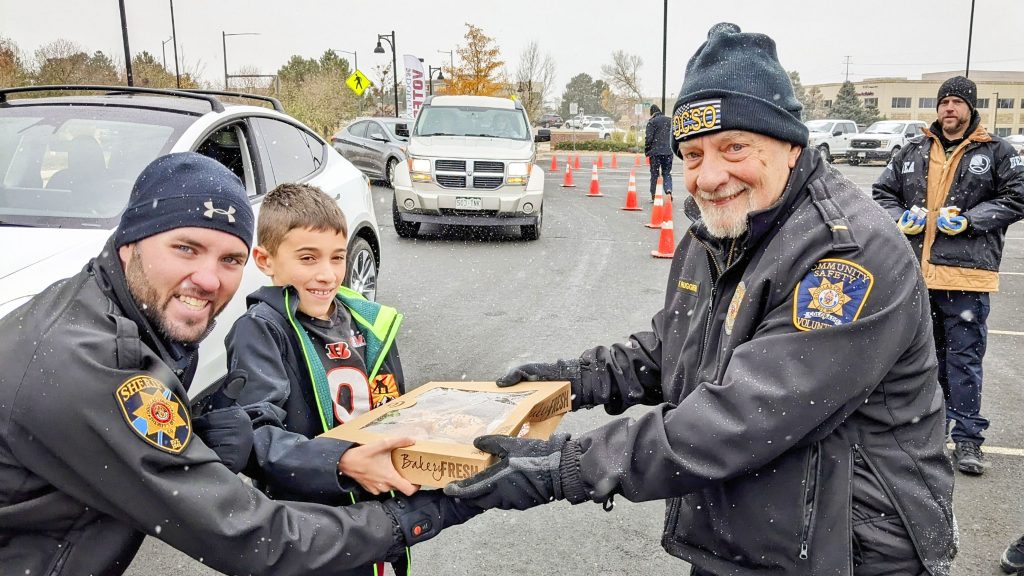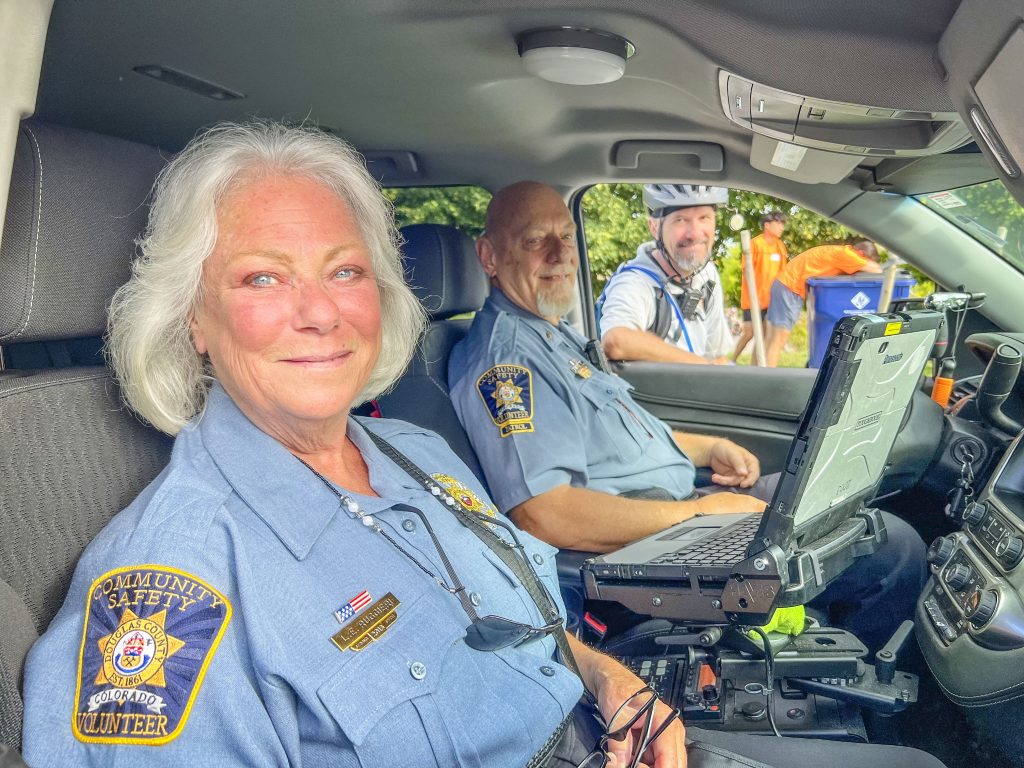A critical component of DCSO: Community Safety Volunteers

DCSO Deputy Lee Jazombek (left) and CSV Frank Ruggieri (right) accept a box of donuts from a young citizen during a drug take-back event earlier this year.
 The Douglas County Sheriff’s Office (DCSO) has a team of volunteers who are making a huge difference in law enforcement. The Community Safety Volunteers (CSV) are Douglas County residents who are trained to be invaluable assets; they work in tandem with deputies and civilian office staff to help cover many of the tasks and duties that do not require a sworn officer to complete.
The Douglas County Sheriff’s Office (DCSO) has a team of volunteers who are making a huge difference in law enforcement. The Community Safety Volunteers (CSV) are Douglas County residents who are trained to be invaluable assets; they work in tandem with deputies and civilian office staff to help cover many of the tasks and duties that do not require a sworn officer to complete.
Going on patrol to assist residents, CSV patrol cars are similar to regular DCSO vehicles, but are white and blue, instead of black, gold and blue. The CSV patrol duties include house watches, traffic control, VIN verifications, vehicle impounds and citizen assists. These volunteers help with warrants by handling some of the desk work to locate and notify fugitives with misdemeanor warrants, and by doing research on felony fugitives, allowing commissioned officers to spend more time on patrol. CSVs and officers jointly maintain the county’s Most Wanted List.
Investigations are another task CSVs help with, both in and out of the office. They assist with financial crimes, locating video footage and performing liquor code inspections, to name a few of their added responsibilities.
Additionally, the support of CSVs in several other areas like the armory, Office of Emergency Management, computer maintenance and firearms simulator operations make a huge difference in the running and management of the DCSO.
There are several requirements to be a CSV: being at least 21 years old, being a United States citizen and possessing a valid Colorado driver’s license. CSVs must also pass intensive background checks with polygraph, psychological and medical testing, and an integrity interview. Confidentiality is critical to the mission as well as being accomplished in public speaking and presentation skills.
Applicants attend the DCSO Citizen’s Academy, as well as CSV Basic Academy, which is approximately 40 hours long and consists of study guides and hands-on training. After completing both academies, CSVs can move into a specific area of specialty for more specific training.
A minimum of 16 hours of volunteer time per month is required but many CSVs dedicate much more time than the minimum. The CSV program was created in 2006, and since then, volunteers have logged more than 300,000 volunteer hours.
Sheriff Darren Weekly said, “Our Community Safety Volunteers are a critical component of the Douglas County Sheriff’s Office. They provide essential support functions in nearly every area of the agency. They are also part of our DCSO family and appreciated by the staff, as well as the community we serve.”
Today, there are 40 CSVs, which is about half of what is needed to support the current Douglas County population.
For more information or to apply to be a CSV, visit dcsheriff.net/sheriffs-office/volunteering/community-safety-volunteer-2/.

CSVs work in conjunction with Douglas County Sheriff’s Office deputies to keep our communities safe. They are trained, non-commissioned officers who work in nearly every DCSO department and dedicate countless volunteer hours to keep Douglas County a great place to live and work.
By Celeste McNeil; courtesy photos